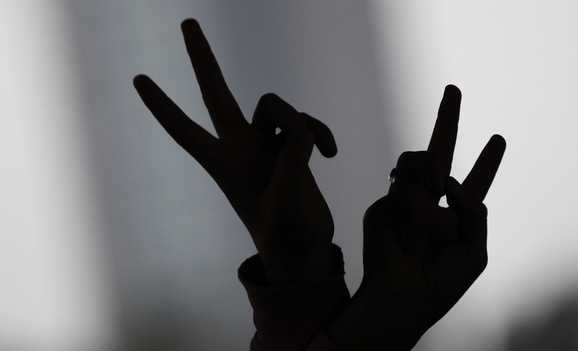By GRAEME GREEN – Thursday, August 21, 2008
The Muslim Uighurs claim China has used the ‘war on terror’ to label all Uighur nationalists as terrorists and supress their culture and religion While the Olympic Games have provided a chance for China to present its most polished face to the world, they have also given marginalised groups the opportunity to bring their agendas to the world’s attention.
As the games draw to a close, we look again at China’s ‘enemies’ before they slip back intothe white noise of international news.
The UighurWho? The Uighur, predominantly Muslim, live in Xinjiang, an autonomous region in north-west China.
Spanning 1.6million sq km, it occupies approximately a sixth of the country.
More than 19million people live in Xinjiang; about 8.3million are Uighur. Traditionally once an obscure nomadic tribe, the Uighur rose to challenge the Chinese Empire.
The name Xinjiang, which means ‘new territory’ in Chinese, is considered offensive by advocates of Uighur independence who prefer historical or ethnic names such as Uyghurstan or East Turkestan.
Why protest? Uighurs have reported arbitrary arrests, torture and executions.
Human rights organisations have voiced their concern that, since 9/11, the ‘war on terror’ has been used as an excuse by the Chinese government to repress ethnic Uighurs; China claims Islamic fighters operating in the region have been trained and funded by Al-Qaeda and repeatedly refer to Uighur nationalists as ‘terrorists’.
The Chinese government has also been accused of suppressing Uighur culture and religion.
Falun Gong
Who? Falun Gong (Work of the Law Wheel) is a religious and spiritual practice of ‘self cultivation’ based on ancient teachings but brought to public attention in 1992 by Master Li Hongzhi.
It mixes Taoist and Buddhist principles and exercises such as meditation and the importance of truthfulness and compassion.
Though numbers are contested, the group has an estimated 100million members worldwide (the Chinese Communist Party has 60million), including 70million in China.
Why? After 10,000 followers staged a 24-hour silent protest outside Communist Party headquarters in Beijing in 1999 against the arrests and beatings of several of their leaders, Falun Gong was banned and declared an ‘evil cult’, accused of engaging in illegal activities, advocating superstition and jeopardising social stability.
A German protest against Chinese presence in Tibet Since then, the state has cracked down on its followers with, say Amnesty International, torture, beatings, illegal imprisonment, psychiatric abuses and ‘re-education’ through forced labour camps.
More than 800 followers are said to have been beaten or tortured to death in custody, though actual figures are thought higher.
There are also reports followers have been executed to harvest organs for the profitable transplant trade.
Tibetans
Who? Tibet is a mountainous region in Central Asia. It was formerly an independent kingdom but, after China invaded the country in 1950, it became part of the People’s Republic of China (which claims Tibet has always been a part of China).
It’s now known as the Tibet Autonomous Region (TAR). Its capital, Lhasa, was previously home to the mainly Buddhist country’s spiritual and political leader, the 14th Dalai Lama, who is living in exile in India.
Why? Since invading Tibet, China has clamped down on religious and cultural freedoms, with documented cases of human rights abuses, religious persecution and torture.
Many Tibetans, both within the country and in exile, continue to demand a return to independence.
Chinese authorities have also been accused of trying to bring about demographic change or ‘cultural genocide’ by giving jobs and other incentives to Chinese populations within Tibet and plundering the country’s natural resources, both likely to be hastened by the construction of a new rail connection between China and Tibet.
Internal dissidents
Who? Despite claiming the Beijing Olympics would open China up to the world, clamping down on dissidents and activists continues.
Individuals and groups calling for democratic change, freedom of information, internet and other media, freedom of expression, workers’ rights and religious freedom are among those jailed or punished.
A recent example is Hu Jia, accused of ‘inciting to subvert state power’ for writing articles about freedom, democracy, the environment and Aids and for repeated contact with foreign journalists.
After months of house arrest, he was recently jailed for three-and-a-half years. His wife and baby daughter went missing on August 7, the day before the Olympics started, both thought to have been taken into police custody.
Why? Chinese authorities continue to take a tough stance against internal criticism, often handing out lengthy jail sentences for ‘dissent’ or ‘subversion’ of state power.
Activists abroad and inside China are calling for the release of dissidents in prisons or forced labour camps, and to end torture and intimidation.
Many dissidents have sought asylum in other countries and would be arrested if they attempted to re-enter China.
From: [email protected] [mailto:[email protected]]
Subject: The Uighur



